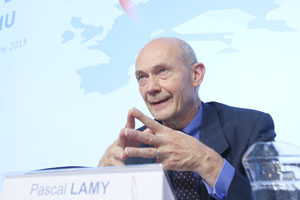Lamy report on 700MHz offers limited comfort for broadcasters
The 700MHz spectrum band currently used for digital-terrestrial broadcasting in Europe should be allocated to wireless broadband use by 2020, give or take a couple of years, while broadcasters should be given regulatory security over their rights to use remaining UHF spectrum below 700MHz until 2030, according to a report presented by former EU commissioner Pascal Lamy to EC vice-president Neelie Kroes yesterday.
Lamy also proposed that a review should be undertaken by 2025 to assess technology and market developments.
The report suggested that a 2020 time-frame for the transition would enable spectrum users and citizens alike to minimise the costs associated with the change.
He also proposed that Europe should reject any plans for primary allocation of mobile to the 470-694MHz band, which is already allocated to broadcasting on a primary basis, at the World Radiocommunication Conference next year.
The EC High-Level Group on UHF spectrum, while agreeing on the importance of digital-terrestrial TV, has yet to reach a consensus on when and how to repurpose the 700MHz band, although this will be a key topic at the forthcoming WRC.
“For too long the broadband and broadcasting communities have been at loggerheads about the use of the UHF spectrum band. There have been many different views and perspectives. On the basis of discussions with the two sectors, I have put forward a single scheme that could provide a way forward for Europe to thrive in the digital century,” said Lamy.
“”Pascal’s report lays down a path for creating capacity for fast wireless broadband everywhere and for ensuring a stable and predictable future for terrestrial broadcasting, while allowing those Member States that want to move forward more quickly to do so. It would also ensure sustainable co-existence, as both sectors focus increasingly on advanced media services. This is essential to secure our changing digital future and hold our own in international negotiations,” said Kroes.




